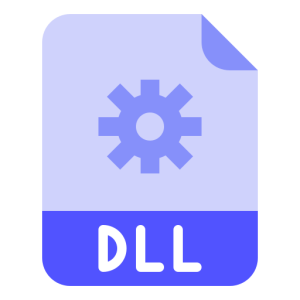Description
DSOUND.DLL
DSOUND.DLL is a dynamic link library (DLL) file that is a crucial component of the DirectSound API, which is a part of the Microsoft DirectX multimedia technology. It is responsible for providing audio playback and recording capabilities for software applications developed on the Windows platform.
This DLL file is designed to enable developers to incorporate realistic and immersive audio features in their applications. It provides a set of functions and resources that allow applications to interact with audio devices, process sound data, and control various aspects of audio playback and recording.
DSOUND.DLL plays a vital role in managing audio resources, handling audio buffers, and providing low-latency audio output. It is essential for applications that require real-time sound processing, such as video games, multimedia players, and audio editing software.
Purpose and Functionality
DSOUND.DLL offers a wide range of functionalities to developers for efficient audio handling and processing, including:
- Audio Playback: The DLL provides functions to play audio files or audio streams, offering control over volume, panning, and other audio settings. It supports various audio formats and offers hardware acceleration capabilities for optimized performance.
- Audio Recording: DSOUND.DLL enables applications to capture audio from external sources, such as microphones or line-in devices. It facilitates the configuration of recording settings, buffer management, and data processing.
- 3D Sound Effects: The DLL includes features for creating immersive audio experiences by spatially positioning sounds in a three-dimensional (3D) space. It allows developers to simulate sound sources at specific locations and apply effects like distance attenuation and Doppler effect.
- Buffer Management: DSOUND.DLL provides functions to manage audio buffers, which store the audio data to be played or recorded. It offers efficient memory allocation, synchronization, and handling of audio buffers to minimize latency and ensure smooth playback or recording.
- Device Interaction: The DLL enables applications to interface with audio devices, such as sound cards or USB audio interfaces. It provides functions to enumerate available audio devices, query their capabilities, and select appropriate devices for audio input or output.
Common Use Cases
DSOUND.DLL is commonly utilized by software applications that require audio playback or recording capabilities. Some of the common use cases for this DLL include:
- Video Games: DSOUND.DLL is extensively used in video game development to provide immersive and realistic audio experiences for gamers. It enables game developers to implement spatial audio, background music, sound effects, and voice chat functionalities.
- Multimedia Players: Applications like media players, audio editors, and digital audio workstations rely on DSOUND.DLL to ensure reliable audio playback and high-quality sound processing. It allows users to play audio files, apply effects, and control volume, equalization, and other audio settings.
- Communication Applications: Voice chat or video conferencing applications utilize DSOUND.DLL to enable real-time audio communication. It provides features like echo cancellation, noise suppression, and audio mixing for clear and seamless communication.

